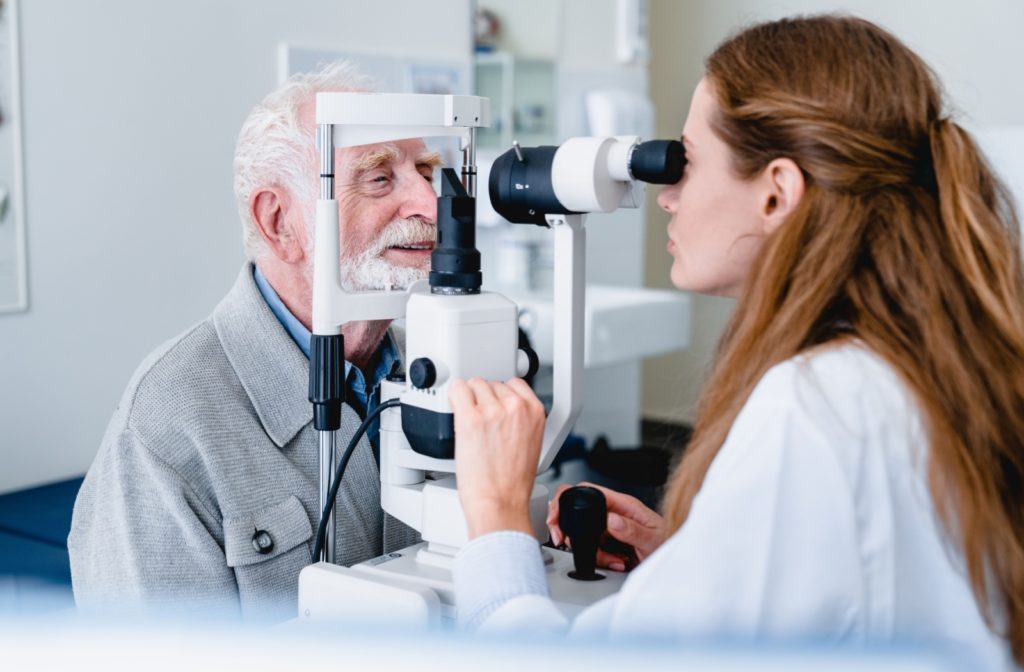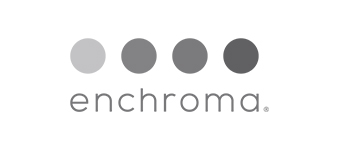Have you recently had an eye exam? Wondering how long your glasses prescription is good for? You’re not alone. The Canadian Association of Optometrists states that an optical prescription is valid for no more than 2 years.
In most cases, a prescription is valid anywhere between 1 and 2 years after your eye exam. The expiration date should be written in the notes section of your prescription, that reads something like, ‘Valid for 12 months from date of examination’.
This two-year period for prescriptions generally aligns with the recommended frequency for comprehensive eye exams for adults. However, if you experience more frequent changes in your vision, your optometrist may advise you to come in sooner. Children, due to the ongoing development of their eyes, generally need eye exams more often as their vision can change rapidly up until around the age of 20–21.
Why Do Prescriptions Expire?
Eye prescriptions aren’t designed to last forever. That’s because your vision isn’t static—it changes over time. For instance, as you age or develop certain health conditions, your eyesight may deteriorate, making it essential to get updated prescriptions to maintain comfortable vision.
Scheduling an eye exam every two years ensures that any significant changes to your eye health are caught early, preventing any issues from worsening. An expired prescription might not fully correct your vision, leading to eye strain, headaches, or even accidents.
When Do Contact Lenses Expire?
Just like eyeglasses, contact lens prescriptions have expiration dates. However, the timeline for contact lens prescriptions can differ. For most people, a contact lens prescription will be valid for a year. However, in some cases, a prescription may expire in as little as 6 months or as long as 2 years, depending on factors such as eye health or the type of lenses prescribed.
Even if your prescription is still valid, it’s important to schedule follow-up visits with your optometrist to ensure your eyes are still responding well to the contact lenses. This is particularly important if you’ve been experiencing issues such as dryness, irritation, or discomfort.
Since contact lenses sit directly on your cornea, any changes to your eye’s shape, tear film, or overall health can affect the comfort and safety of your lenses.
Why Are Accurate Eye Prescriptions Important?
Having an accurate prescription is essential for more than just clear vision—it’s also crucial for your eye health. Here’s why:
Preventing Eye Strain and Discomfort
Wearing glasses or contacts with the wrong prescription forces the muscles around your eyes to work harder to compensate for blurry vision. This can lead to fatigue and even long-term problems such as migraines or chronic discomfort.
Ensuring Correct Alignment
An optometrist checks more than just the strength of your prescription during an eye exam. They also make sure that your glasses or contacts are properly aligned with your eyes. Misalignment can lead to double vision, difficulty focusing, or even dizziness.
Early Detection of Eye Conditions
Regular eye exams that include a prescription update can help detect eye health issues such as glaucoma, cataracts, or macular degeneration in their early stages. These conditions may not present noticeable symptoms at first, so maintaining up-to-date prescriptions helps ensure that any potential problems are caught early.

What Factors Affect the Duration of an Eye Prescription?
Several factors affect how often you need a new eyeglass prescription. These vary by person and can change over time.
Age
Children’s prescriptions tend to change more frequently because their eyes are still developing. In fact, vision can change rapidly during childhood and adolescence, meaning young children may need eye exams every 6 to 12 months. In contrast, adult prescriptions tend to remain stable for longer periods, though they do still change a bit as we age.
Health Conditions
Certain health conditions, like diabetes or high blood pressure, can affect your vision over time. For example, if you’re managing diabetes, changes in your blood sugar levels can affect the way your eyes focus, so regular exams and updated prescriptions are critical to catch and manage any issues early.
Lifestyle Factors
If you spend a lot of time staring at screens, your eyes may become fatigued more quickly, which could prompt you to seek an updated prescription sooner. People who are highly active or who have jobs that require specialized vision (like pilots or surgeons) may also need their prescriptions adjusted more often.
Vision Changes
Some people experience changes in their vision more frequently than others. For instance, if you notice your vision becoming blurrier or if you begin having trouble with activities like reading or driving, it’s a good idea to visit your optometrist. They may recommend updating your prescription earlier than the typical 1-2 year cycle.
Contact Lenses vs. Glasses
If you wear contact lenses, you may need more frequent checkups than those who wear glasses. Contacts sit on the cornea, and changes in the shape of the cornea or the condition of your eyes may necessitate an updated prescription more frequently.
Book Your Eye Exam in Saskatoon
Prioritize your eye health with regular comprehensive eye exams. Maintaining a current prescription not only ensures clear vision, but also acts as the perfect excuse to browse the latest eyewear trends! For your convenience, Pinehouse Eyecare offers fast prescription processing through our centralized lab. We also fill prescriptions from other eye care providers! Schedule your eye exam today or visit us on the corner of Pinehouse and Primrose, near Lawson Heights Mall and the Lawson Civic Centre!










